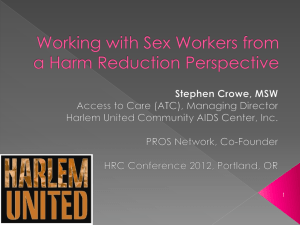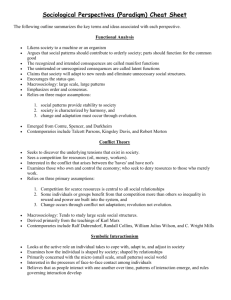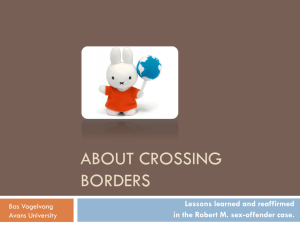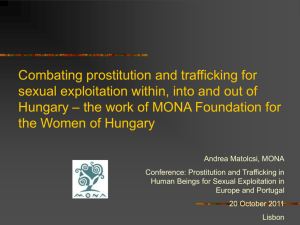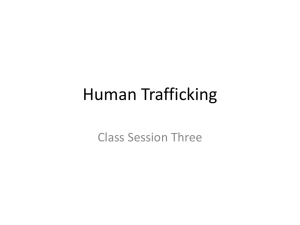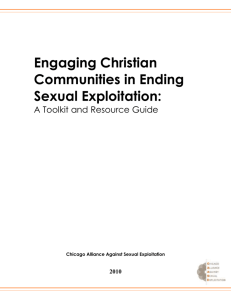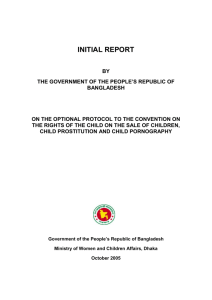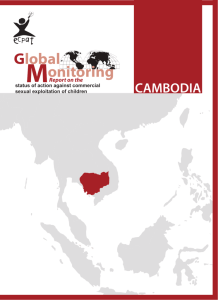test your knowledge about sex trafficking and sexual exploitation!
advertisement
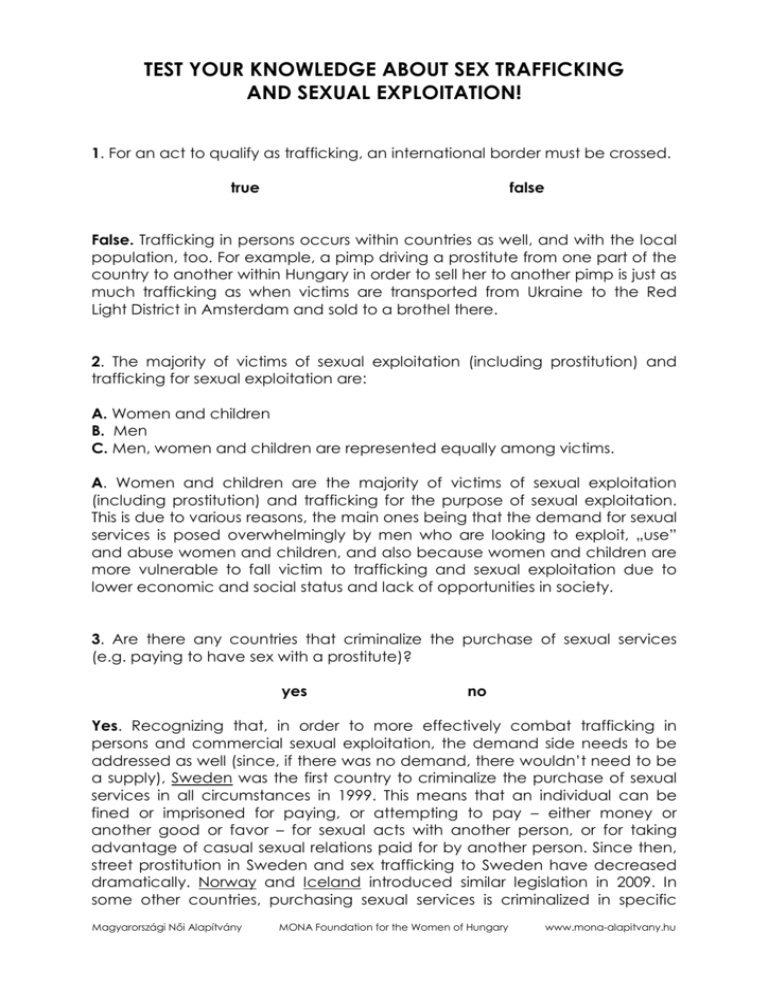
TEST YOUR KNOWLEDGE ABOUT SEX TRAFFICKING AND SEXUAL EXPLOITATION! 1. For an act to qualify as trafficking, an international border must be crossed. true false False. Trafficking in persons occurs within countries as well, and with the local population, too. For example, a pimp driving a prostitute from one part of the country to another within Hungary in order to sell her to another pimp is just as much trafficking as when victims are transported from Ukraine to the Red Light District in Amsterdam and sold to a brothel there. 2. The majority of victims of sexual exploitation (including prostitution) and trafficking for sexual exploitation are: A. Women and children B. Men C. Men, women and children are represented equally among victims. A. Women and children are the majority of victims of sexual exploitation (including prostitution) and trafficking for the purpose of sexual exploitation. This is due to various reasons, the main ones being that the demand for sexual services is posed overwhelmingly by men who are looking to exploit, „use” and abuse women and children, and also because women and children are more vulnerable to fall victim to trafficking and sexual exploitation due to lower economic and social status and lack of opportunities in society. 3. Are there any countries that criminalize the purchase of sexual services (e.g. paying to have sex with a prostitute)? yes no Yes. Recognizing that, in order to more effectively combat trafficking in persons and commercial sexual exploitation, the demand side needs to be addressed as well (since, if there was no demand, there wouldn’t need to be a supply), Sweden was the first country to criminalize the purchase of sexual services in all circumstances in 1999. This means that an individual can be fined or imprisoned for paying, or attempting to pay – either money or another good or favor – for sexual acts with another person, or for taking advantage of casual sexual relations paid for by another person. Since then, street prostitution in Sweden and sex trafficking to Sweden have decreased dramatically. Norway and Iceland introduced similar legislation in 2009. In some other countries, purchasing sexual services is criminalized in specific Magyarországi Női Alapítvány MONA Foundation for the Women of Hungary www.mona-alapitvany.hu circumstances, for example, if it can be proven that the person has been trafficked, is a victim of „forced” prostitution, is a minor (under 18 years of age), or if purchasing or offering sexual services is legal elsewhere in the country, city or district, but not in that specific location. It is important to note that in most of the countries which have introduced some sort of punishment for purchasing sexual services, the selling or offering of sexual services is not criminalized because, according to these countries’ laws, the person in prostitution is considered a victim and not a criminal. 4. The men who pay for prostitutes are usually lonely, single, and incapable of finding a partner or obtaining sex otherwise. true false False. Men who purchase sexual services come from all walks of life and socio-economic backgrounds, including wealthy businessmen and politicians. Several studies have shown that 50% or more of men who purchase sexual services have a partner, be it a girlfriend or wife, and in many cases also children. 5. Individuals completely freely and consciously choose to become prostitutes. true false We leave this one up to you to decide. Whether or not someone engages in prostitution completely voluntarily is the subject of much debate among policy makers and – especially feminist – NGOs and activists. Those who take the „sex-worker” approach argue that people can choose, without any physical, emotional or economic force, pressure or abuse at any point in their lives, to engage in prostitution. Others – including the distributors of this leaflet – are of the opinion that prostitution is something that an individual ends up in for various reasons: as a result of physical, sexual or emotional violence – often suffered already as children, which can result in low self-esteem, lack of self worth, and an unhealthy view of sexuality and their body; by being brought into prostitution at an early age, when we cannot in any sense speak of a conscious decision; economic necessity (they need money and think prostitution is a fast way to earn lots of it); and/or the perception of a lack of alternatives (they feel they have no other choice due to their education level and training, the lack of jobs in their area, etc.) In our opninion, with these factors at play, one cannot talk about a completely free and conscious choice. And even if there are such cases, we feel that these are the exeption, and not the overwhelming majority of cases. Magyarországi Női Alapítvány MONA Foundation for the Women of Hungary www.mona-alapitvany.hu
